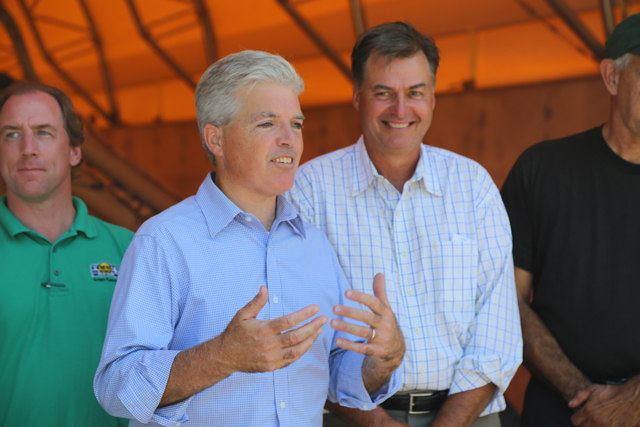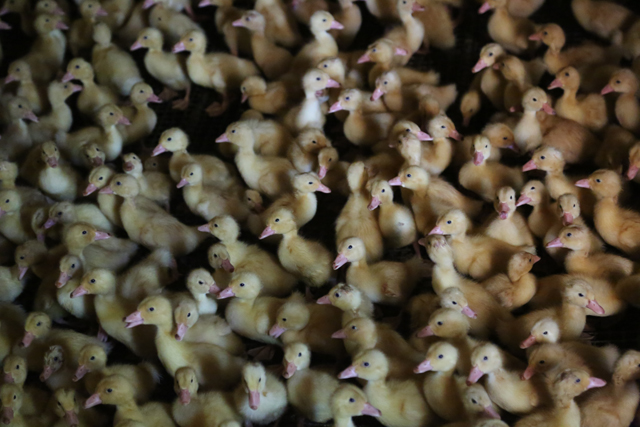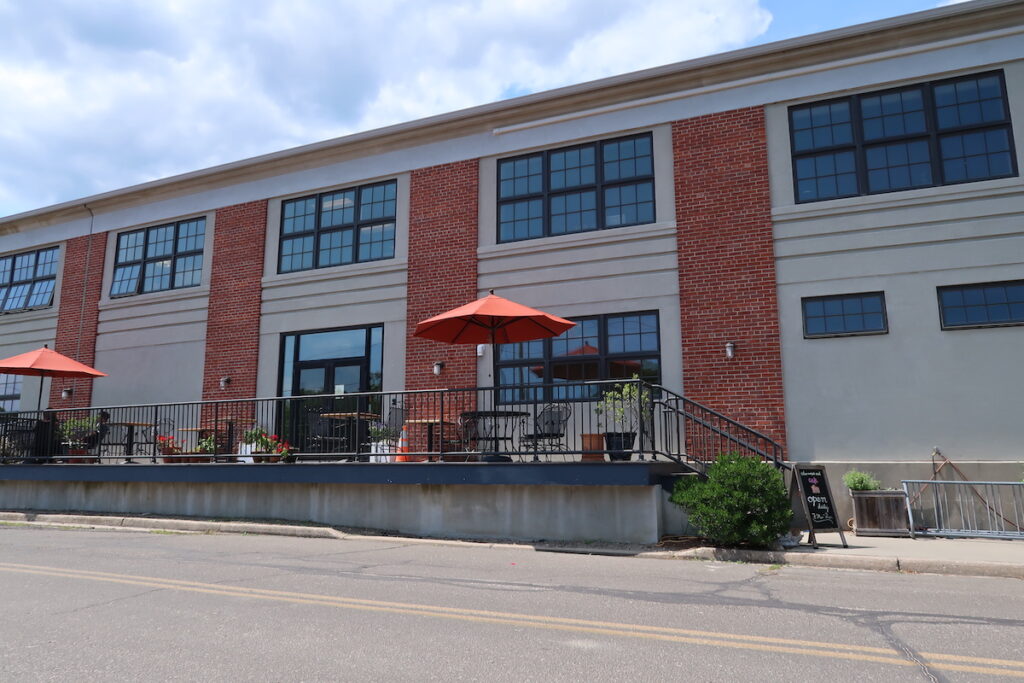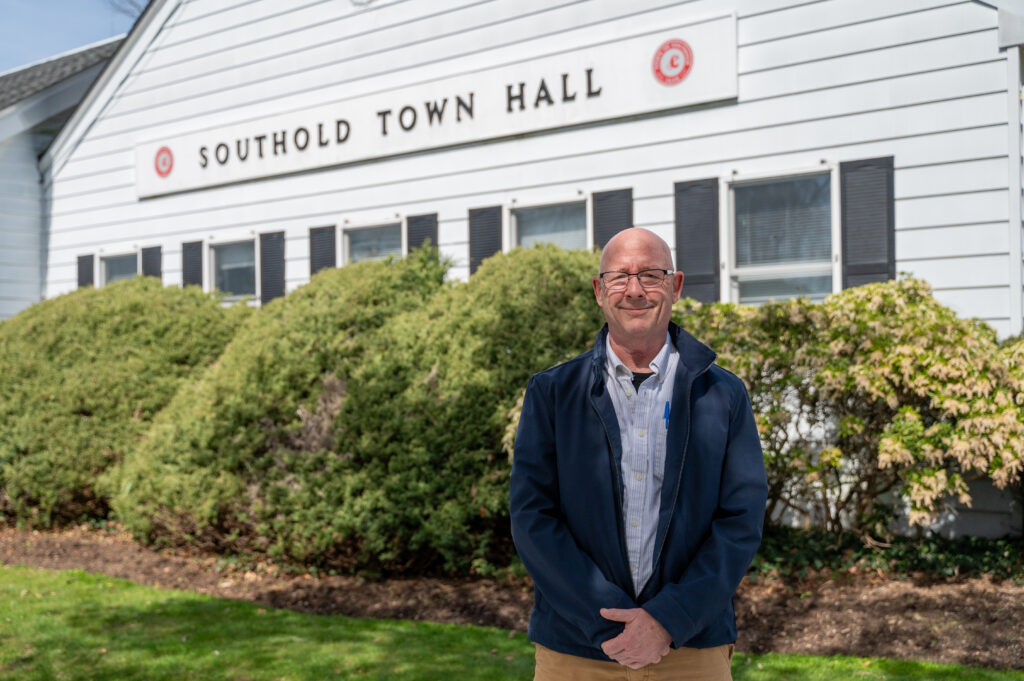Crescent Duck Farm unveils waste storage facility to protect water quality


Crescent Duck Farm, the last of its kind on Long Island, has a new 26,000 square foot solid waste storage facility that will prevent thousands of pounds of nitrogen from polluting ground and surface waters.
Suffolk County provided $250,000 in matching funds toward the nearly $800,000 total cost, the lion’s share of which was taken on by the Aquebogue farm’s owners, the Corwin family. The farm — the last operating duck farm on Long Island and a part of local history, is also making sure water quality is protected, Suffolk County Executive Steve Bellone said Thursday at the new facility.
“I think it is without question related to part of the inherent makeup of a farmer — that they are, and have to be by the very nature, ingenious in many different ways and just figure out how to make things happen and get things done,” Mr. Bellone said.
The facility, essentially a massive hoop structure made of steel and concrete, will prevent upwards of 7,300 to 21,000 pounds of nitrogen from infiltrating into the water system annually, according to the county.
The county executive acknowledged that while the quality of local waters is impacted largely by lack of advanced wastewater treatment in homes, agricultural uses also play a part in nitrogen pollution.
The Corwins have taken other major steps in waste management at the farm over the years. About a decade ago, the farm spent $3.5 million on a waste treatment facility that costs in the neighborhood of $1 million to run each year, Doug Corwin said.
“I spend about a dollar a duck just treating waste,” he said.
With nitrogen pollution being “basically public enemy number one,” Mr. Corwin said a lot of time and effort is put into dealing with waste, not just raising and selling ducks. He thanked the county for its support and help in keeping the farm legacy going.
The wholesale duck farm has adapted and managed water to the “likes of which I’ve never seen,” and created a green operation, said Deputy County Executive Peter Scully.
Mr. Corwin said he grew up up learning about the need to treat the waste, part of an education that included knowing that “we had to be a part of the community to stay in the community.” After the solid waste goes through a composting operation, remaining manure nutrients with more stable levels of nitrogen can be used at local “dirt operations,” such as vineyards and sod farms, he said.
Suffolk County Legislator Al Krupski (D-Cutchogue) thanked the Corwin family for its commitment to agriculture for the next generation. He also thanked the county executive and legislature for supporting the farming industry and protecting water quality in the Peconic Bay area.
The building shows that agriculture is “not just putting a seed in the ground and watching it grow,” Long Island Farm Bureau administrative director Rob Carpenter said.
Peconic Estuary Program director Alison Branco said most of the time when she talks to farmers, they want to do the right thing for water quality because they all live in the area with their families, but for many, implementing all the practices that affect water quality is just “prohibitively expensive”
“This is a great example of how a little bit of funding, from the county in this case, made it possible for them to do what they wanted to protect water quality,” she said.










